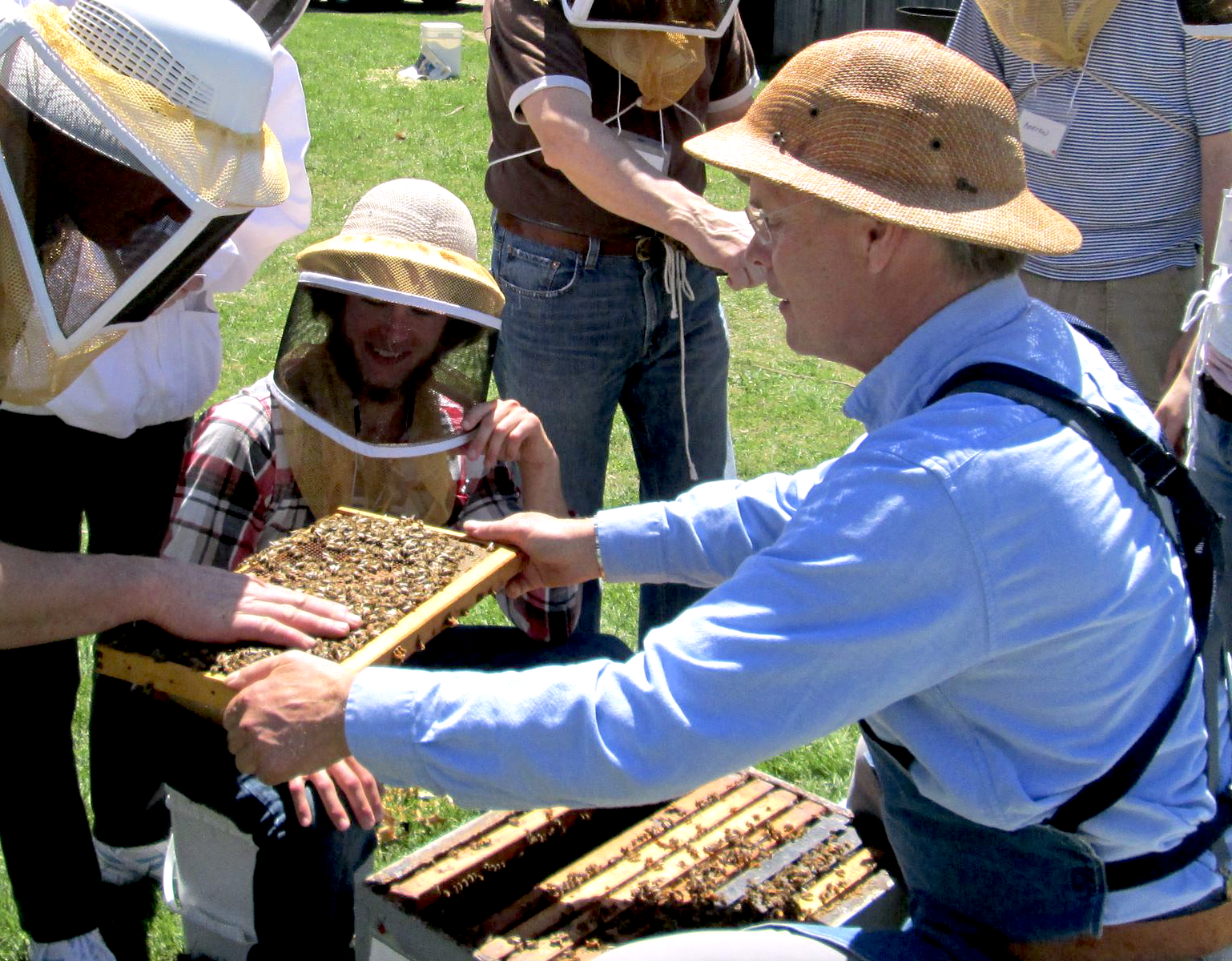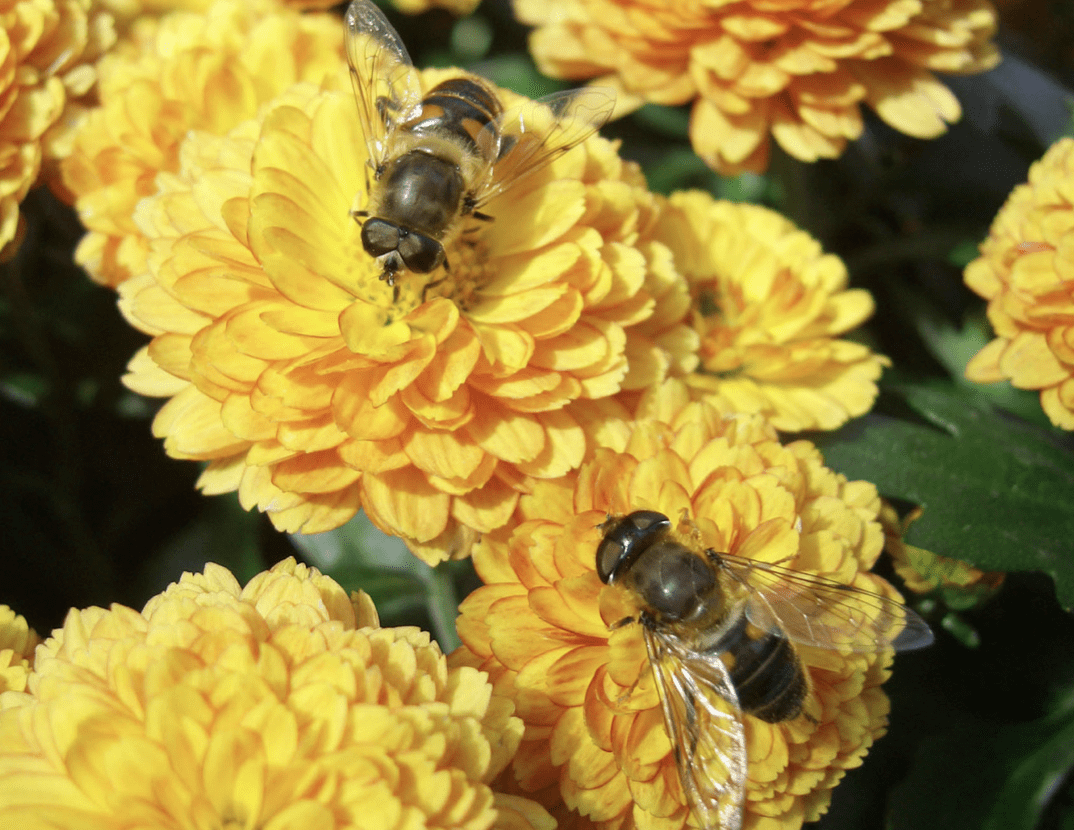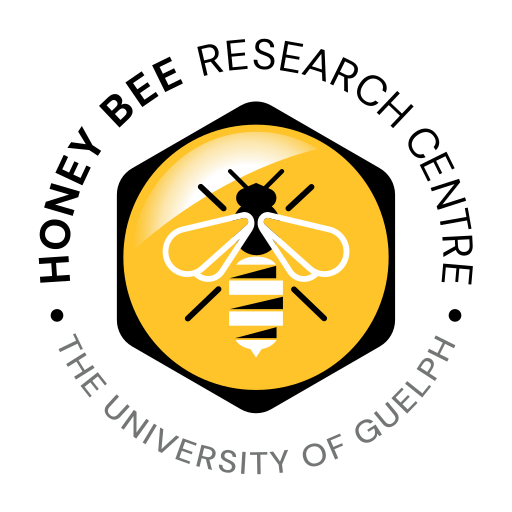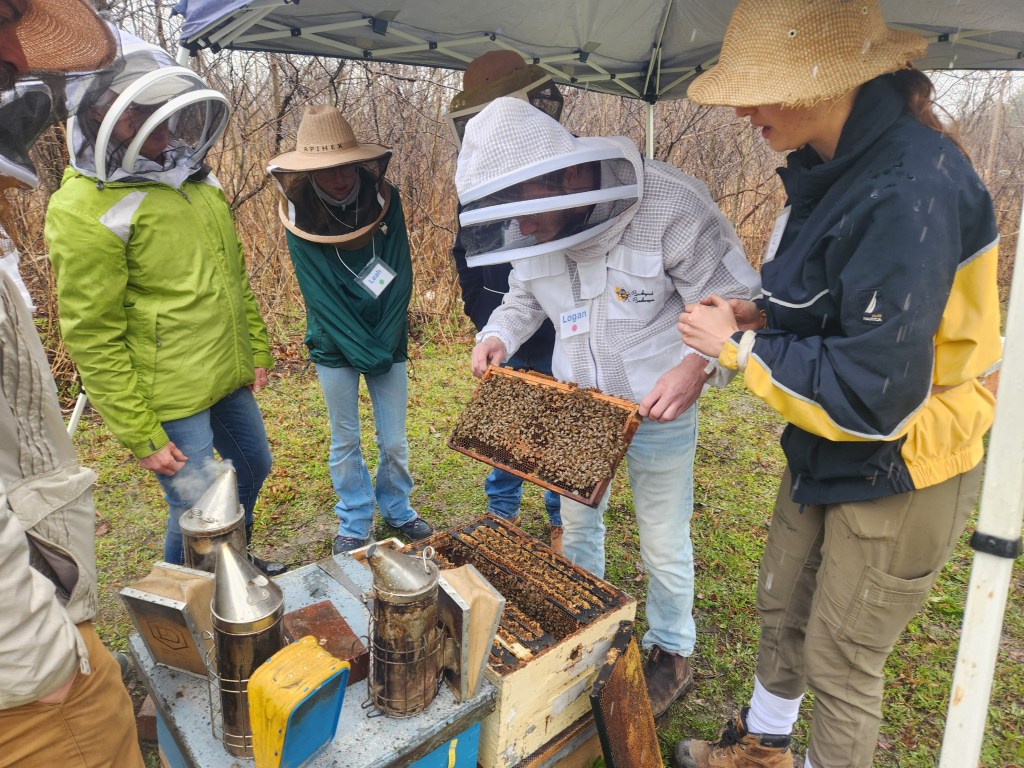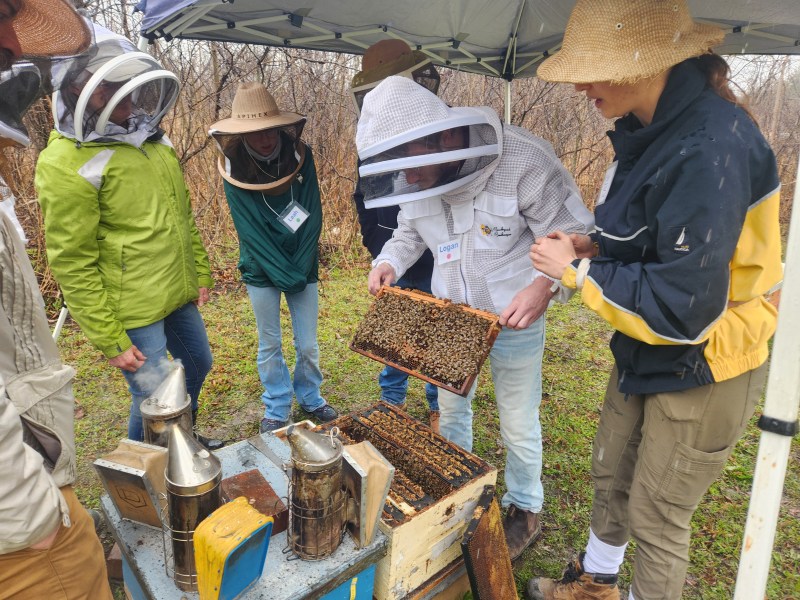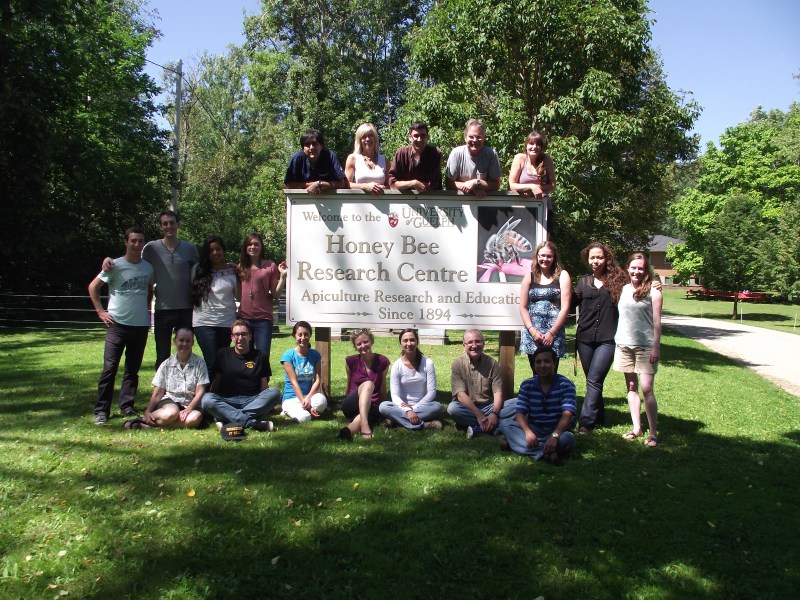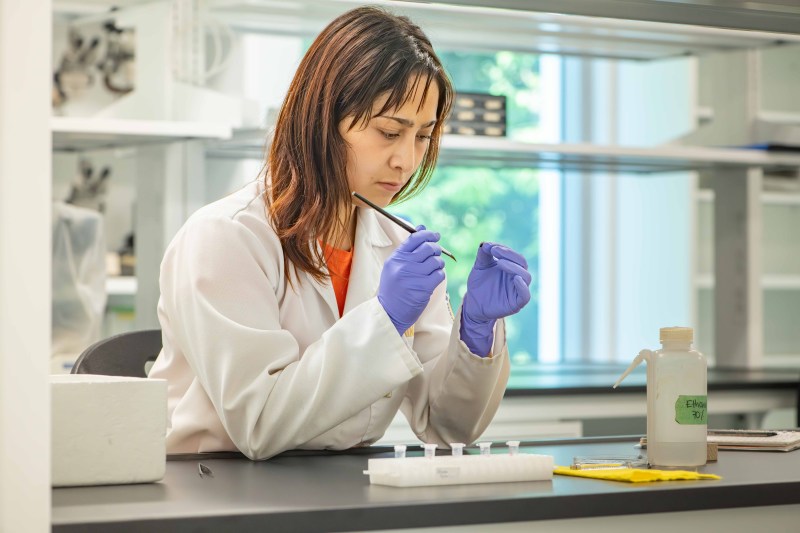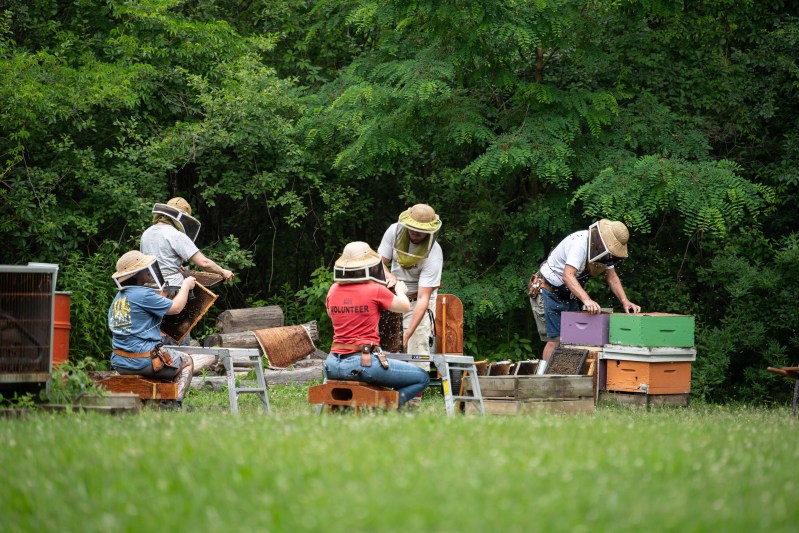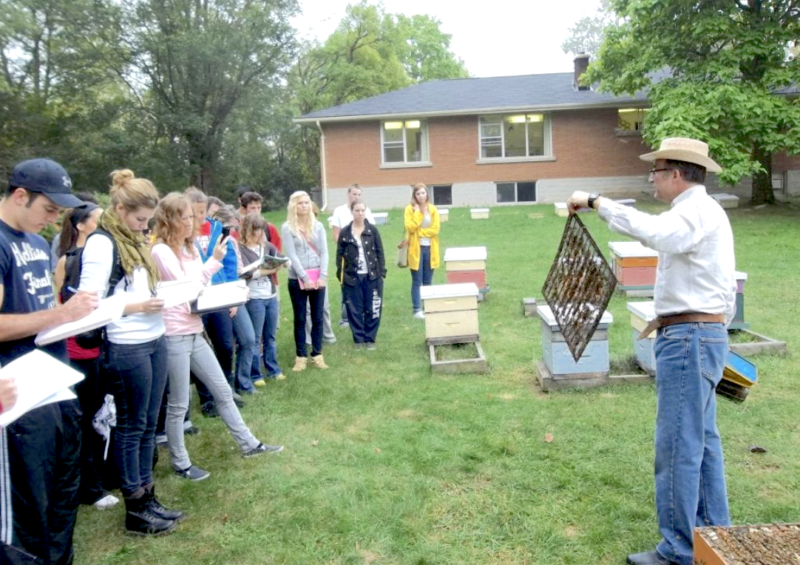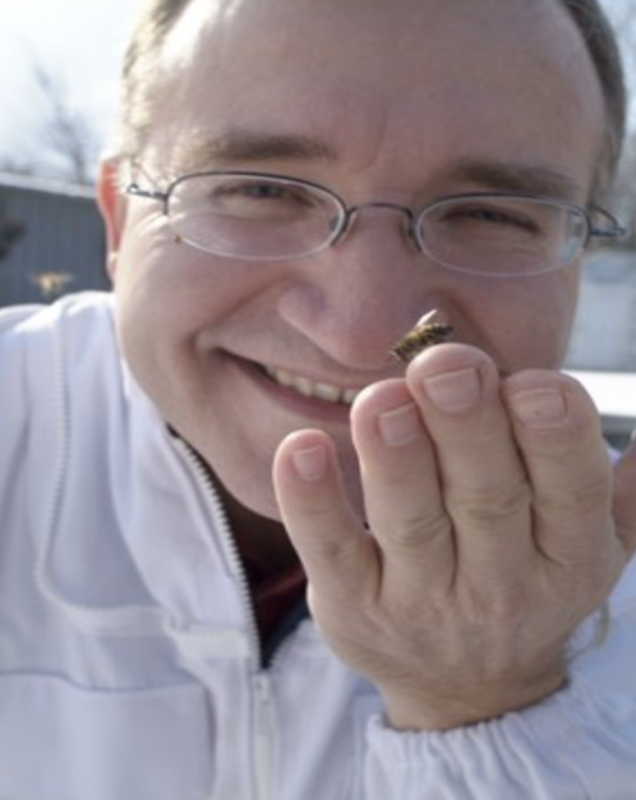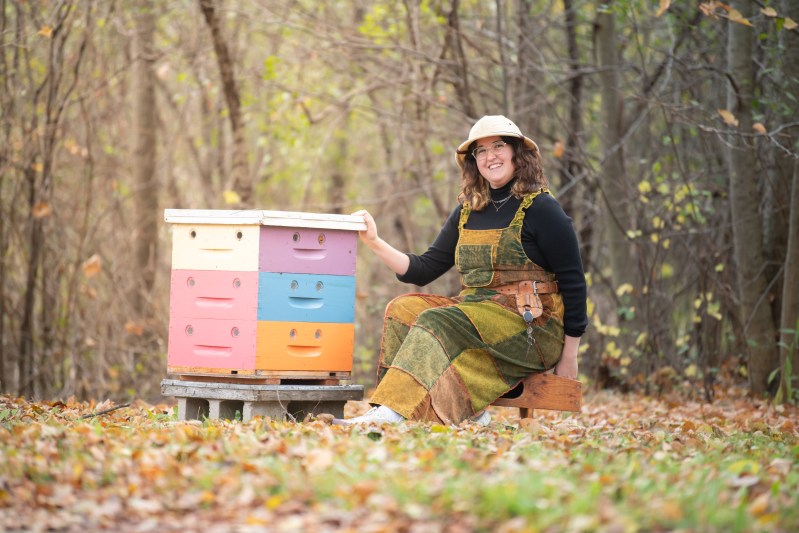A New Iconic HBRC Facility
We have created a new, iconic facility for honey bee education, research, advocacy and outreach. It is a destination; a place of excellence in design, function and research. All in support of the future of honey bees.
Our research and education activities are now all based at the new centre. There are ongoing construction projects both within the building and on the grounds. Once those are completed, we will announce the grand opening date.
Luckevich Pinchin HBRC address:
460 Stone Road East, Guelph
For a virtual video tour filmed on June 9th, 2025, click the above construction progress link.

News Feed
2026 In-Person Introductory Beekeeping Courses Now Scheduled
The Honey Bee Research Centre is pleased to announce our 2026 In-Person Introductory Beekeeping Courses, offered twice in…
HBRC at the Royal Agricultural Winter Fair 2025
Honey Bee Research Centre’s Apiculture Program has been part of the Royal Agricultural Winter Fair…
HBRC at the Ontario Beekeepers’ Association AGM & Conference 2025
The Honey Bee Research Centre is pleased to announce that Dr. Ernesto Guzman, Director of…
Luckevich Pinchin Honey Bee Research Centre
A Leader In Apiculture, Research And Education
Honey bees play a key role in agricultural productivity and ecosystem sustainability by providing pollination services to crops and wild plants. Our mandate is to help honey bees continue this vital work.
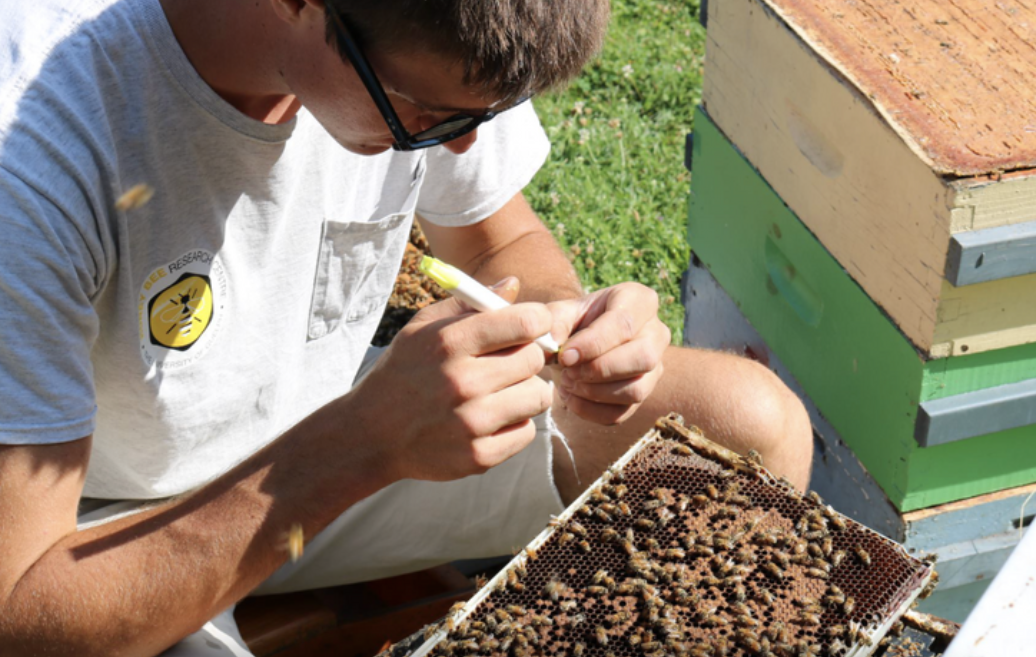
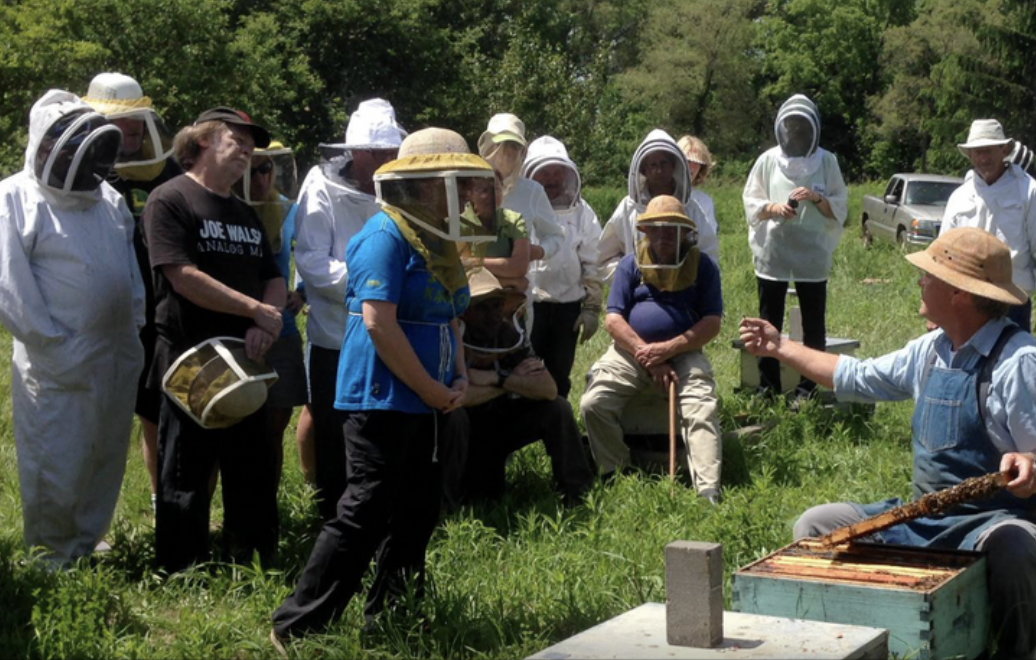

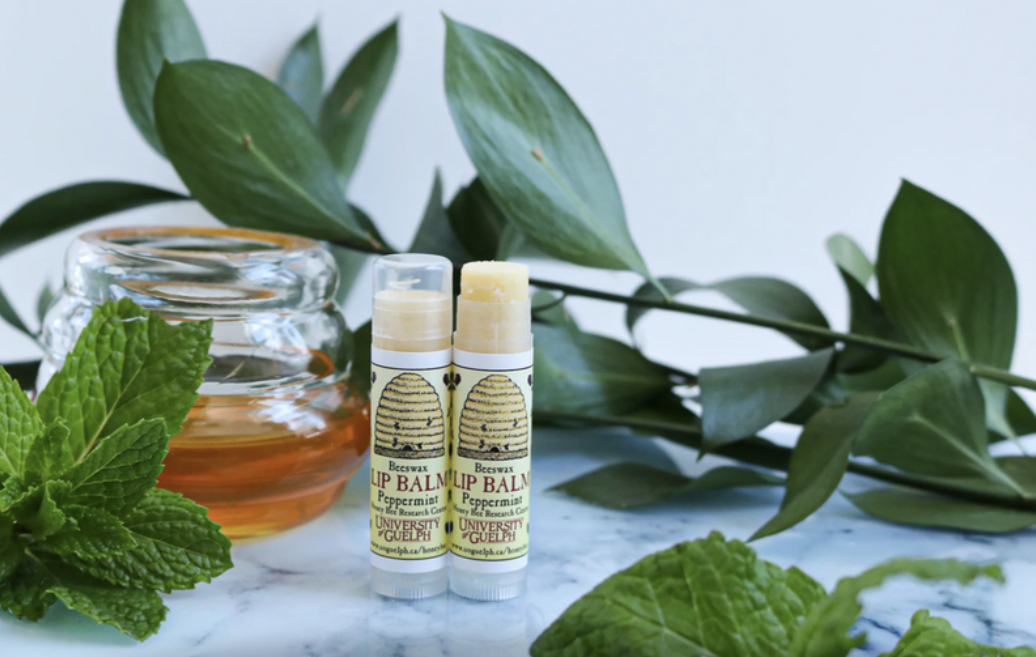
Featured Articles
- 2026 In-Person Introductory Beekeeping Courses Now ScheduledThe Honey Bee Research Centre is pleased to announce our 2026 In-Person Introductory Beekeeping Courses, offered twice in Spring 2026 at the Luckevich Pinchin HBRC (460 Stone Road East). These popular courses are designed for beginner and intermediate beekeepers. Our course provides a foundation in honey bee biology, hive management, and seasonal beekeeping practices. Participants will benefit from in-person… Read more: 2026 In-Person Introductory Beekeeping Courses Now Scheduled
- Celebrating 22 years of hosting Mexican student interns | Spring/Summer 2025The University of Guelph’s Honey Bee Research Centre (HBRC) has proudly hosted more than 30 veterinary medicine students from Mexico through a long-standing internship program founded by Dr. Ernesto Guzmán. These students, specializing in honey bee health, receive training in beekeeping and pathology while contributing to research projects in Canada. The program began with four… Read more: Celebrating 22 years of hosting Mexican student interns | Spring/Summer 2025
- Honouring Jamie Burns | Spring/Summer 2025Approximately 15 years ago, we were contacted by Jamie Burns, a former student of our weekend beekeeping course. Jamie was deeply intrigued by what he learned about our research and education centre. His fascination with honey bees, along with their many captivating stories inspired him to offer his financial support. Over the years, Jamie’s generosity… Read more: Honouring Jamie Burns | Spring/Summer 2025
- HBRC Merchandise | Spring/Summer 2025We were encouraged 15 years ago by the Dean of the Agriculture College to create a logo to help support our mission. One of the first uses of the logo was on T-shirts, and later on hats, made for staff to wear when they are conducting tours and representing the HBRC at events. These T-shirts… Read more: HBRC Merchandise | Spring/Summer 2025
- Research Briefs | Spring/Summer 2025Valeria Bernal Pueblita, a veterinary medicine and animal science student from the National Autonomous University of Mexico, is currently completing her professional internship at the University of Guelph’s Honey Bee Research Centre (HBRC). Her research focuses on controlling Varroa destructor mites, one of the biggest global threats to honey bees, by exploring the potential role of… Read more: Research Briefs | Spring/Summer 2025
- Hive Update | Spring/Summer 2025This year has been a season of challenges and successes for the Honey Bee Research Centre. Over the winter, we lost close to 30% of our colonies – more than we would have liked. These losses were likely due to issues with mite control last year. As spring began, our colonies were mixed in strength:… Read more: Hive Update | Spring/Summer 2025

Meet Us
“The OAC is a leader for advanced agricultural and environmental research and has an inspiring 125-year history of honey bee research.”
Rene Van Acker,
Dean, Ontario Agricultural College, UoG
“We are passionate about bees at the Honey Bee Research Centre. Our life’s work is understanding bee health problems and providing solutions. To ensure honey bee sustainability, we provide many educational opportunities for beekeepers and visitors of all ages. We look forward to enhancing our research and education capacities with a new Honey Bee Research Centre. Please help us help bees by joining our community of supporters.”
Paul Kelly
Research And Apiary Manager, HBRC
“Having a world class facility with the capacity for advanced research and outreach is essential to the apicultural industry in Canada. The Honey Bee Research Centre will now continue to be an even stronger model for Canada and the world of progressive and innovative beekeeping activity. “
Rod Scarlett
Executive Director, Canadian Honey Council
5000
Visitors Annually
326
Hives
28
Tons of Honey Produced Annually
1894
Apiculture, Research, and Education Commenced
30
Million YouTube Video Views in 14 Languages
